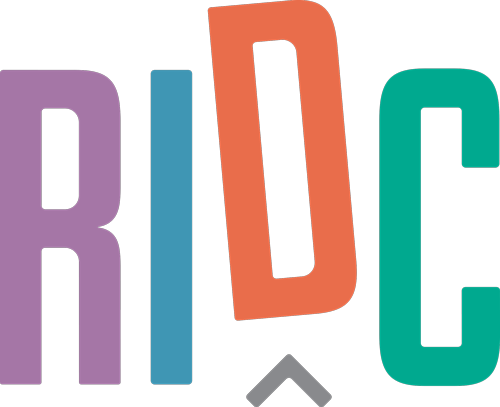Rising Above the Noise: DEI Leaders in the Running Industry Share Their Blueprint for Progress
By Kiera Smalls
Many perspectives, analyses, and debates saturate the discourse in the ever-evolving Diversity, Equity, and Inclusion (DEI) landscape. Amidst the noise and viewpoints, we cannot overstate the significance of informed, nuanced, and industry-specific insights.
At the Running Industry Diversity Coalition, our mission is to unite the running industry to improve the inclusion, visibility, and access of Black, Indigenous, and other People of Color. We recognize the pivotal role of our guidance and clarity by experienced leaders in helping shape a more inclusive future.
In our commitment to elevate the conversation and drive meaningful change, we interviewed a few leaders in the running industry with DEI roles to share their expertise and perspectives. Through our reporting, we aim to contribute to the dialogue and help our sector climb beyond the general noise, fostering an informed industry as diverse and dynamic as the individuals it serves.
Keep reading for the interviews!
Shannon Woods
Senior Manager of Diversity, Equity, & Inclusion at Brooks.
“DEI work can be overwhelming and discouraging at times and can come with moments of doubt, especially as we experience the increase of anti-DEI sentiment in the media. The work of DEI is often misunderstood. Running industry leaders should be aware of but not distracted by the headlines.”
RIDC: DEI initiatives often encounter various challenges and resistance. From your experience, what are some of the most significant barriers to implementing effective DEI strategies in the running industry? How have you or your organization navigated these challenges and risen above the noise, and what lessons could be shared with others striving to make similar progress who may or may not have dedicated DEI leaders at their company?
Shannon: I have often seen commonality in companies where their biggest barrier to implementing effective diversity, equity, and inclusion (DEI) within their organization is themselves, and that is true for the running industry as well. In my experience these barriers to DEI show up as resistance to change, lack of leadership, bias, limited resources, organizational culture, lack of accountability, inadequate education, and tokenism. Addressing these barriers requires a holistic approach to strategy that involves leadership commitment, cultural transformation, ongoing education, transparent communication, and accountability measures to ensure that initiatives and practices are implemented and sustained over time.
At Brooks, we have navigated these challenges first by identifying where our organization can have an impact. There is a lot going on in the world - and as a running company we will not be able to solve everything - but we can focus on our industry’s unique challenges and maximize the actionable changes we are able to make. Understanding where we can engage and have impact is critical to narrowing our focus and having achievable goals. Then, we can take a deeper look at ourselves and have an honest and transparent understanding of our own organization, even if the outcomes were undesirable or fell short of our set goals standards. Having clarity on the gender and racial demographics and policy assessments of our organization has helped guide us in building practices to address disparities. In addition, having a culture where DEI is integrated into all that we do, and is seen as a responsibility of all Brooks employees regardless of position, is imperative to making progress. And progress does not happen overnight. It takes patience, intention, and consistency to see incremental improvements over time.
DEI work can be overwhelming and discouraging at times and can come with moments of doubt, especially as we experience the increase of anti-DEI sentiment in the media. The work of DEI is often misunderstood. Running industry leaders should be aware of but not distracted by the headlines. This is an opportunity for all leaders to anchor back to the values of their organizations and reinforce their understanding of the “why” of their work to then have an in-depth understanding of “how” the work gets done.
Stephanie Lubin
Senior Manager of Diversity, Equity, & Inclusion at New Balance
“Identify areas within your role where you can influence change. If you observe a lack of representation in your team or projects, address it and hold yourself and others accountable for finding solutions.”
RIDC: For leaders in the running industry who do not hold formal DEI titles but may feel discouraged or overwhelmed by recent and forthcoming DEI-related headlines, what advice or message would you like to offer? How can they constructively engage with and contribute to DEI discussions and initiatives in their respective roles?
Stephanie: First, concentrate on what's within your locus of control. Stay focused on your goals and vision despite the external noise. Establish connections and build a community within the industry to share experiences and insights. It's essential to block out distractions and focus on the ongoing conversation around DEI, recognizing that it is alive and thriving, shaping global, cultural, and industry developments.
Don't shy away from uncomfortable conversations; growth and learning often occur when stepping out of your comfort zone. Begin with a personal analysis of your identity and privilege, examining how you navigate the world. Expand this introspection to your connections, ensuring a diverse network with access to various perspectives.
Move beyond personal reflections to assess your organizational impact. Identify areas within your role where you can influence change. If you observe a lack of representation in your team or projects, address it and hold yourself and others accountable for finding solutions.
At New Balance, DE&I is an integral part of our brand. From community-building and support for our ARGs to innovation, creativity, and intentional partnerships with athletes and brand ambassadors, we strive to contribute to building a better world. We are reevaluating our hiring practices, performance management, and sustainability impact, recognizing that there's a long journey ahead to achieve our goals. However, we are committed to learning and growing together, working towards a better future for our associates, customers, and communities.
Sahra Kaboli-Nejad
Global Head of Diversity, Inclusion, and Social Impact at On
“I try to remind myself that, more often than not, the loudest person in the room doesn't necessarily represent the majority. “
RIDC: Impact of DEI on Running Industry Trends: How do you believe DEI influences current and future trends in the running industry? For instance, do you see DEI shaping product development, marketing strategies, events, or senior leadership decision-making? Can you provide specific instances where an emphasis on DEI has led to noticeable changes?
Sahra: Absolutely - If brands want to meet the needs of a continuously diversifying customer base, we need to develop and market products that resonate. This is something we are already integrating across the business at On, as we've always been committed to diversity and inclusion initiatives expanding across the organization, not just being siloed within a Talent or HR function. You have seen the incredible impacts this has had across the industry, for example greater commitments to inclusion at running events. In the past, there wouldn't have been a thought around accessibility for wheelchair-users, all-gender bathrooms, parents rooms, or integration of a land blessing (to name a few). Making these a standard part of the decision-making process results in events, campaigns, and products that connect to our consumers and groups that have been historically left out of the conversation.
RIDC: For leaders in the running industry who do not hold formal DEI titles but may feel discouraged or overwhelmed by recent and forthcoming DEI-related headlines, what advice or message would you like to offer? How can they constructively engage with and contribute to DEI discussions and initiatives in their respective roles?
Sahra: I try to remind myself that, more often than not, the loudest person in the room doesn't necessarily represent the majority. While recent headlines have been discouraging, I am overwhelmed with gratitude for the often less-reported on responses of continuous commitment to diversity and inclusion that come from people across all industries and regions of the world. We are all part of the solution, regardless of our job title or official role, and many times these solutions are small steps that, over time, make a huge impact. I encourage our own leaders to reflect on their own processes, guidelines, and ways of working and ask themselves questions like, "Are we considering all perspectives?" "Who is being left out of these conversations?" "How can we take a diversity and inclusion lens on this topics?"
Glenn Newman
Director, DEI & Employee Experience at Strava
“Educating people, shifting behaviors, changing hearts and minds is extremely difficult and taxing - especially when you're talking about anything DEI-related. Again though, leadership championing the change and visibly demonstrating their commitment is key.”
RIDC: DEI initiatives often encounter various challenges and resistance. From your experience, what are some of the most significant barriers to implementing effective DEI strategies in the running industry? How have you or your organization navigated these challenges and risen above the noise, and what lessons could be shared with others striving to make similar progress who may or may not have dedicated DEI leaders at their company?
Glenn: (Personal perspective) The most significant barrier to implementing effective DEI strategies in my experience is demonstrated leadership commitment. Demonstrated commitment means that actions align with the written or spoken commitment to antiracism and/or DEI. Leaders and organizations demonstrate commitment by taking action and holding others accountable for their actions that either advance or don't advance written or spoken commitments. That means setting goals and rewarding those who meet or exceed the goals. It also means treating DEI goals, KPIs or OKRs like other business metrics. So if these DEI goals and metrics that aren't achieved leaders need to be similarly held accountable in the same way they would if they fail to meet other business metrics.
Change management is also a significant barrier. Educating people, shifting behaviors, changing hearts and minds is extremely difficult and taxing - especially when you're talking about anything DEI-related. Again though, leadership championing the change and visibly demonstrating their commitment is key. I often say, "People spend time on what leaders say is important or what leaders signal is of importance."
RIDC: For leaders in the running industry who do not hold formal DEI titles but may feel discouraged or overwhelmed by recent and forthcoming DEI-related headlines, what advice or message would you like to offer? How can they constructively engage with and contribute to DEI discussions and initiatives in their respective roles?
Glenn: (Personal perspective) Lately I've been spending a lot of time talking about allyship. Lean In defines allyship as "the active and consistent effort to use your privilege and power to support and advocate for people with less privilege". If you're in a role where you lead people or if you lead a functional area or team, you likely have more power than most DEI practitioners. Understand that most DEI practitioners and DEI leaders serve as advisers, consultants, and business partners on the very best of days. This means that most of us don't have the power or decision-making authority to affect change. We influence change by educating and making recommendations. So my advice is to use your positional power and privilege to contribute to DEI discussions and initiatives in your role. If you're a lower-level individual contributor who is a member of one or multiple historically excluded groups, you likely have less positional power and privilege. If you want to learn more about how to be an ally in the workplace, check out Lean In's Allyship at Work content (It's free).
Ashley Dyson
Diversity and Inclusion Manager at ASICS
“Invite people in by creating fun and interactive ways where people can share their experiences and stories but also take something away that they didn’t know before. This work of DEI is already hard making it fun doesn’t lessen the impact; most times it enhances it.”
RIDC: For leaders in the running industry who do not hold formal DEI titles but may feel discouraged or overwhelmed by recent and forthcoming DEI-related headlines, what advice or message would you like to offer? How can they constructively engage with and contribute to DEI discussions and initiatives in their respective roles?
Ashley: This question speaks to me because this was my life before stepping into my role. I was a Learning and Development Manager who had a passion for change. With the social unrest in the world, I wanted to make a change where I was. I always tell people, DEI was my passion project at ASICS and my hard work, dedication and education turned my passion to my profession! My advice would be a few things:
Align the why of your work to the company’s values! When you can show why the work in DEI ties to the business, you will have the attention of those who can help generate more influence and movement. This could be doing research, surveys, focus groups with employees, or market data - all of these points help to explain the why behind the what!
Have senior leaders sponsorship/advocating on your behalf. When you have senior leadership bought into DEI impact and influence can be made. When senior leaders are bought in, conversations about your work can be held in spaces you don’t occupy. People have to not just believe in the work of DEI but see how this would positively impact the employees, consumers, and ultimately the bottom dollar. When the leaders see this, change can happen!
Bring up topics in meaningful ways, but also make them engaging within your teams or scope of influence. DEI can be scary to those who do not understand or feel like an outsider to the issues. Invite people in by creating fun and interactive ways where people can share their experiences and stories but also take something away that they didn’t know before. This work of DEI is already hard making it fun doesn’t lessen the impact; most times it enhances it.
Michelle Marshall
Head of Diversity, Equity, and Inclusion at Puma
“Inclusivity in the running industry isn't just about breaking records; it's about breaking barriers.”
RIDC: DEI initiatives often encounter various challenges and resistance. From your experience, what are some of the most significant barriers to implementing effective DEI strategies in the running industry? How have you or your organization navigated these challenges and risen above the noise, and what lessons could be shared with others striving to make similar progress who may or may not have dedicated DEI leaders at their company?
Michelle: Inclusivity in the running industry isn't just about breaking records; it's about breaking barriers. Embracing diversity ensures that every step forward is a stride toward unity, where every runner, regardless of background or ability, feels empowered to lace up and join the race. It is also important that people have access and awareness of the numerous careers that are key to shaping the industry and ensuring that products and campaigns are reflective of diverse audiences needs.







